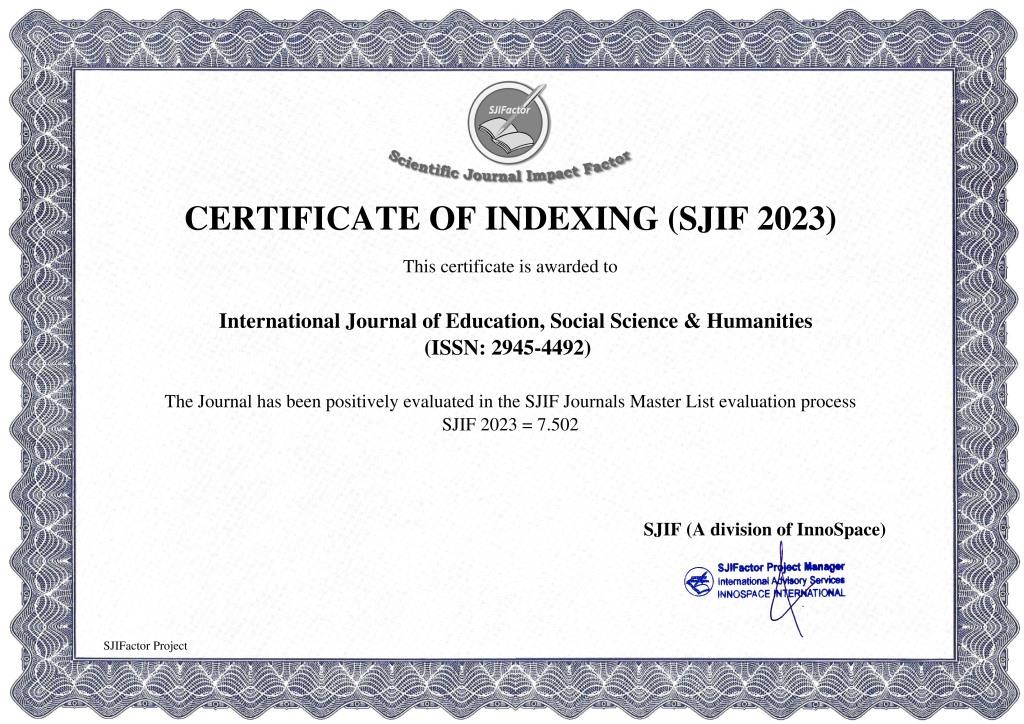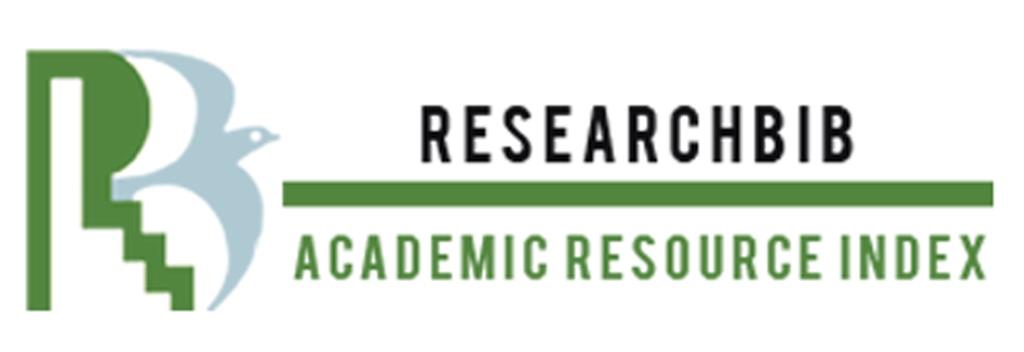THE IMPORTANCE OF ACADEMIC DICTIONARIES IN INTERCULTURAL COMMUNICATION.
Keywords:
academic dictionary; cultural lexicography; intercultural communication; extralinguistic factor, electronic dictionary; printed dictionary; language acquisition; lexicography.Abstract
This article examines the significance of academic dictionaries in the context of intercultural communication. Intercultural communication involves communication between individuals from diverse cultural backgrounds, and language plays a crucial role in bridging the cultural divide. The article highlights the crucial role played by academic dictionaries in intercultural communication, as these dictionaries provide the necessary vocabulary and explanations that facilitate effective communication between people of different cultures. The article further explores how academic dictionaries can help overcome linguistic and cultural barriers and improve intercultural communication. In today's world, dictionaries are becoming increasingly complex and offer valuable information on language, words, and society. However, intercultural communication presents a challenge due to differing languages and cultural codes, which dictionaries have not fully addressed. Nonetheless, linguistic and cultural dictionaries show potential for convergence. This article examines the formation of a culturological direction in lexicography, identifies problems with reflecting culturally-loaded lexical units in linguistic dictionaries, and discusses the characteristics of modern linguistic and cultural reference books.
References
Артемова O. E. Теория и практика лингвокультурологического анализа: учеб. пособие. Уфа: РИО БашГУ, 2006. 128 с.
Балабин В. В. Взаимодействие культур и языков // Коммуникативная лингвистика и межкультурная коммуникация: материалы Международной научно-практической конференции. М.: Университет Натальи Нестеровой, 2006. С. 20-24.
Карпова О. М. Лексикографические портреты словарей современного английского языка. Иваново: ИвГУ, 2004. 192 с.
Карпова О. М. Учебные словари Collins современного английского языка. М.: ACT, 2005. 64 с.
Колесникова М. С. Диалог культур в лексикографии: феномен лингвострановедческого словаря. Ярославль, Изд-во ЯГПУ, 2002. 392 с.
Кургузова Е. В. 2009: Имена собственные немецкой культуры в историческом фрагменте нормативно-научной картины мира: автореф. дис. … канд. филол. наук Смоленск.
Морковкин В. В. 1986: О базовом лексикографическом знании // Учебники и словари в системе средств обучения русскому языку как иностранному / В. В. Морковкин, Л. Б. Трушина (ред.). М., 102–117.
Лебедева C. B. Культурологический аспект современных английских учебных словарей // Лексика, лексикография, терминография в русской, американской и других культурах. Иваново: Иван. гос. ун-т, 2005. С. 182-185.
.Пассов Е. И. 2003: Теория и технология иноязычного образования как наука: оптимизм против реальности // Русский язык в центре Европы. Банска Бистрица. 6, 70–81.
Петрушова О. Л. Учебные словари в межкультурной коммуникации: дисс. … к. филол. н. Ярославль: ЯГПУ, 2009. 213 с.














